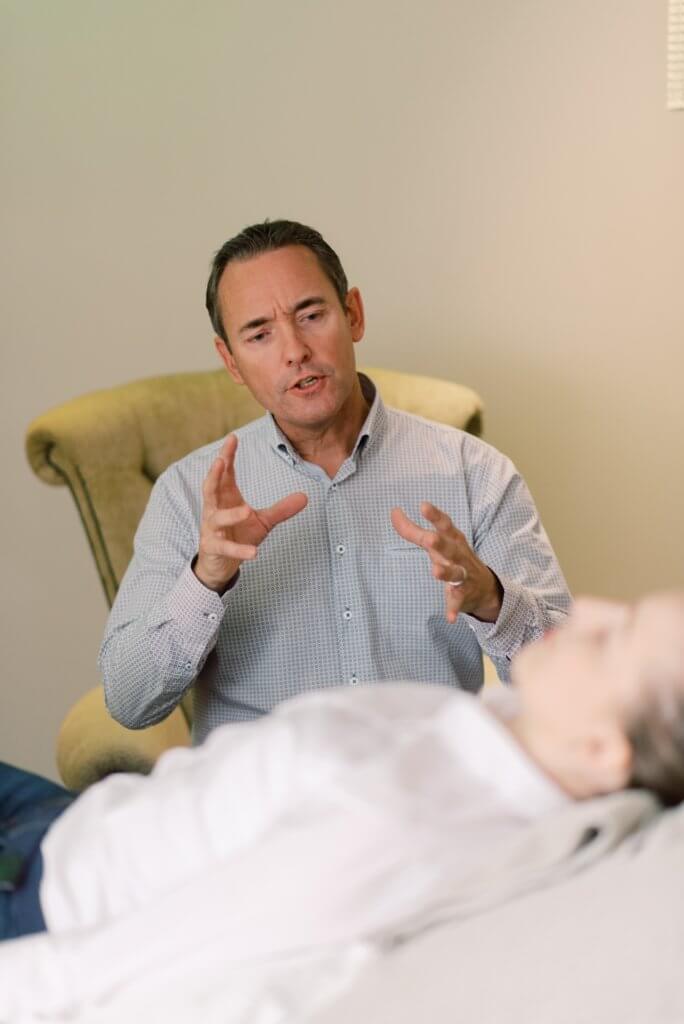What is a psychologist?
A psychologist is a trained health professional who helps treat many kinds of behavioural and mental health issues.
Psychologists use an assortment of evidence-based treatments to help people improve their lives. They use psychotherapy, also known as talk therapy, to build a talking relationship where they can establish and assess your behaviours and emotions.
There are many different types of psychologists, the most common include:
- Applied psychologists who use psychological principles to solve problems e.g engineering, human factor psychologists.
- Research psychologists conduct studies with human participants.
- Mental health psychologists work with people experiencing mental disorders of psychological distress. They work in hospitals, mental health clinics, schools or private practices.
What are the responsibilities of a psychologist?
Psychologists study and help treat people’s cognitive, emotional and social processes and behaviours. One of their main goals is to evaluate their clients thoughts, emotions and behaviours.
They do this through:
- Identifying behavioural and emotional patterns
- Diagnosing disorders
- Making referrals
- Coming up with treatment plans
As a psychologist you may work with clients in a private practice or in schools, hospitals, community health centres and nursing homes. Daily duties are dependent on your specific area of practice but typically involve:
- Conducting studies to understand how the brain works
- Carry out research using different techniques such as examinations and observation
- Working with clinics to diagnose psychological disorders
- Implement treatment plans

What are the key skills required by a psychologist?
Psychologists will develop a broad skill set throughout their education and training to succeed in the field. Some of the key skills needed include:
- Expertise and knowledge of psychological theory and practice
- Interest in how people behave
- Ability to empathise with a range of people
- Active listening skills
- Excellent teamwork skills
- Excellent communication skills
- Ability to cope with emotionally demanding situations
- Strong research skills
What qualifications do you need to become a psychologist?
In order to become a chartered psychologist in the UK, you’ll need to have an undergraduate degree in psychology accredited by the British Psychological Society (BPS). This is the representative body for psychology and psychologists .
After your degree you can apply for postgraduate study in your specialist field and will need to undertake a three-year doctorate in clinical psychology. Courses must be approved by the health and care professions council to work as a clinical psychologist, counselling, forensic or health psychologist.
Some clinical-related work experience may be required prior to commencing postgraduate training (for example, by working as an assistant psychologist in an NHS clinical psychology department). It may be possible to gain this experience through volunteering.
Steps to becoming a psychologist:
Step 1: Study a BPS Accredited Psychology Qualification:
The first step to becoming a psychologist is to complete a degree accredited by the BPS. Entry requirements for these courses typically include 3 A Levels or equivalent. Alternatively, if you have a degree in another subject, you can obtain a BPS-accredited conversion course that typically takes a year to complete.
Step 2: Choose an area you want to specialise in:
Once you have completed your undergraduate degree you’ll then need to consider what type of psychologist you want to be and choose an area to specialise in. Areas can include clinical psychology, occupational psychology and sports psychology.
Step 3: Undertake further research in the field you want to practice:
From there you can apply for a postgraduate degree in this area. Depending on which area you want to practice, you can complete a postgraduate degree in this specialist area, do a postgraduate research degree or take a BPS qualification. It is important to note that Competition for postgraduate training is high, typically a first or upper second-class degree and evidence of research is needed.
Step 4: Register as a clinical psychologist:
Once you have completed the degree you must then register with the Health and Care Professions Council (HCPC) if you’re training to be a clinical psychologist..
Step 5: Apply for psychologist jobs:
Typically it takes 6 – 7 years to obtain the credentials to become a chartered psychologist. Once you’ve finished your studies you can start applying for jobs in the area you want to practise in. It is important to make sure your CV and cover letter are up to date to showcase your relevant experience and skills.
How much does a psychologist earn in the UK?
The average salary of a psychologist in the UK is £35,420 per year. Depending on location and if you work for the NHS or private sector this can vary.
- If you work for the NHS as a trainee clinical psychologists salaries start at £32,306 (Band 6).
- After you are qualified you move to Band 7 with a starting salary of £40,057.
- Band 8a and b is for more experienced psychologists earning up to £63,000
- Consultants and clinical psychologists are in Bands 8c/d earning up to £90,000
- Heads of psychology are in band 9 and can earn up to £108,000
- If you work for the NHS in London, salary is higher due to high costs of living

Related occupations
- Nurse
- Maternity support worker
- Gynecologist
- Health visitor
- General practitioner
- Homeopath
- Dental Hygienist
- Phlebotomist
- Counsellor
- Aesthetic nurse

